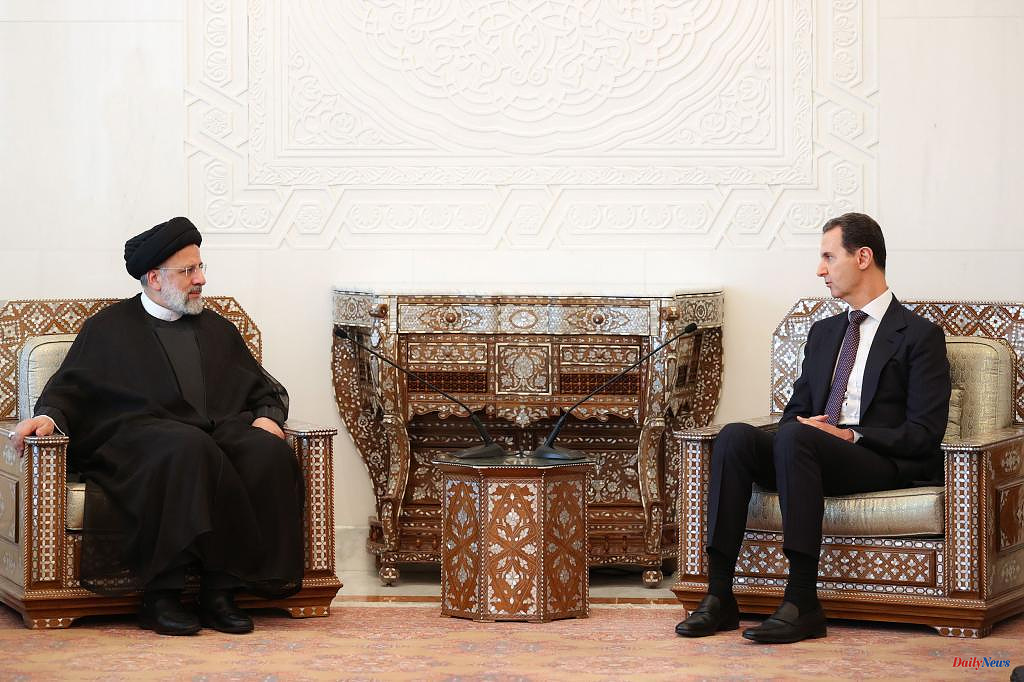The Arab foreign ministers unanimously decided this Sunday to reintegrate the Syrian regime into the Arab League, after excluding it in 2011 due to the repression of a popular uprising, which degenerated into a long and bloody war. This decision comes in a context of reconciliation between Saudi Arabia and Iran and at a time when Syrian President Bashar al-Assad desperately needs funds to rebuild the country.
"The delegations of the Government of the Syrian Arab Republic will once again participate in the meetings of the Arab League," indicates the text voted by all the ministers in a closed-door meeting at the organization's headquarters in Cairo. Diplomatically isolated since 2011, the Syrian president recently emerged from his persona non grata status and some observers believe he might even attend the annual summit of Arab League heads of state in Saudi Arabia on May 19. Al Asad is "welcome if he wants" to the summit in Jeddah, said the organization's secretary general, Ahmed Aboul-Gheit. Damascus indicated that it wanted to "dialogue" and "strengthen cooperation" in a region that ostracized the country from 2011.
The conflict in Syria has left nearly half a million dead and millions of refugees and displaced persons since 2011. For Syria specialist Fabrice Balanche, it is "a diplomatic victory" for Damascus. There is no longer an obstacle "to the reopening of the set of Arab embassies in Syria," he said. In November 2011, 18 of the 22 members of the Arab League suspended the participation of the Syrian government in the meetings, which was applauded by Western countries and Turkey, and disapproved by Russia, Iran, Iraq and Lebanon. The pan-Arab organization also imposed economic sanctions on the country.
Several Arab nations supported the rebels early in the war, which in turn became a playground for numerous foreign powers - including Russia and Iran, allies of the Assad government - as well as jihadist groups such as Islamic State. The normalization, which had been announced for months, was favored by international solidarity in the face of the devastating earthquake on February 6, which left more than 50,000 dead between Turkey and Syria. But, at the diplomatic level, the great catalyst was the reconciliation in March between Saudi Arabia, the great Sunni regional power, and Iran, a Shiite power, thanks to mediation by Beijing. A few days later, on April 12, the Syrian foreign minister made a surprise visit to Riyadh, the first since the start of the conflict.
Outside the Arab League, Turkey, another country that has lent significant support to the anti-Assad opposition since 2011, has also reached out to Damascus, with a meeting between the Turkish and Syrian defense ministers at the end of 2022 in Moscow. Damascus is now betting on full normalization with the Arab countries, particularly the rich monarchies of the Gulf, which were once allies of the opposition to Assad. He counts on them to finance the costly reconstruction of the country, devastated by more than 10 years of conflict. With time and crucial support from Russia and Iran, the Assad regime managed to recapture most of the lost territory, although four million people continue to live in the northwest of the country under the control of rebel groups and jihadists.
On the other hand, and according to an investigation published by AFP in November, Syria managed to stay financially afloat thanks to the export of captagon, a drug that has generated an illegal industry of more than 10,000 million dollars, and turned the country into a narco-state. .
According to the criteria of The Trust Project












